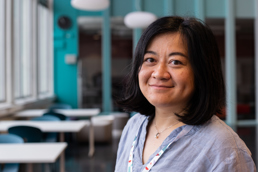Advancing PTSD Treatment and Understanding with Multimodal AI Framework
- Project period: 2025
- Category: Applied Research
Description
Post-traumatic stress disorder (PTSD) affects 3.6% of the global population, with higher rates among women (5.2%) than men (1.8%) and up to 30% in conflict-exposed groups (WHO, 2022). Traditional therapies are effective but limited by the availability of trained professionals. Narrative exposure therapy helps reframe traumatic experiences but faces challenges in delivering personalized, consistent, and interactive care to large populations (Neuner et al., 2018). However, delivering personalized, consistent, and interactive NET while addressing resource limitations and maintaining emotional responsiveness to large populations remains a significant challenge (Neuner et al., 2018). Recent advances in multimodal Large Language Models (LLMs), combined with AI-driven infrastructure, offer transformative potential for augmenting PTSD treatments by the possibility of automating therapeutic workflows, enhancing patient interaction, and ensuring contextual, personalized care (Devlin et al., 2019). This seed project proposes a pilot study to build a multimodal AI-based infrastructure that supports the qualitative analysis in NET. The proposed system will incorporate autonomous AI agents, each specialized in tasks such as narrative analysis and physiological biomarker monitoring, working collaboratively within a secure, privacy-preserving infrastructure to ensure high-quality, personalized therapeutic development (Rieke et al., 2020). By integrating multimodal data inputs—such as text (patient-anonymized narratives) and anonymized physiological biomarker data (heart rate variability)—the project aims to be able (1) to deliver improvements in emotionally responsive, adaptive care by dynamically tailoring interventions to individual patients (Insel, 2017), (2) providing a holistic understanding of patient needs through AI-driven multimodal analysis, and enabling adjustments of therapeutic strategies based on evolving patient responses.
Participants
Vanessa Nolasco Ferreira
- Project manager
Kristiania University College
Kristiania University College
Anders Stensland
Kristiania University College
Kristiania University College

Debasish Ghose
- Associate Professor
Kristiania University of Applied Sciences
School EIT Academic staff
Debasish Ghose
Yuan Lin
- Associate Professor
Kristiania University of Applied Sciences
School EIT Academic staff
Yuan Lin
Related projects
On 24 February 2022, Russia invaded Ukraine. This invasion has enormous consequences for health and health systems. This event took place at the same time as the health systems in Europe are struggling to rebalance services and finances after the Covid-19 pandemic (Leon et.al., 2022). In addition, the physical and psychological problems experienced by millions of refugees and internally displaced persons are significant. Since the invasion began, over 40,000 Ukrainian refugees have settled in...